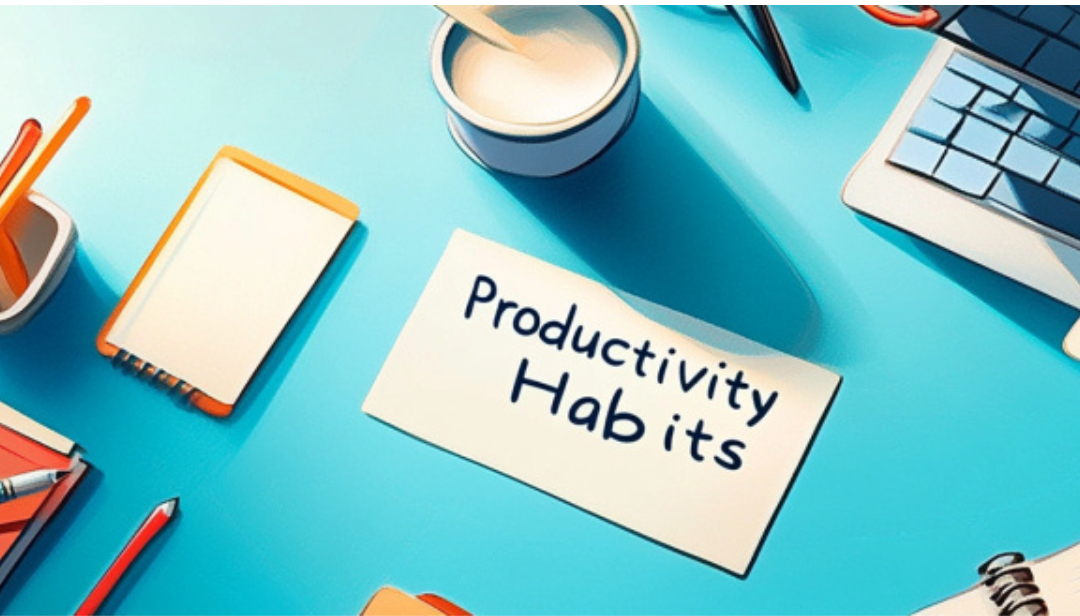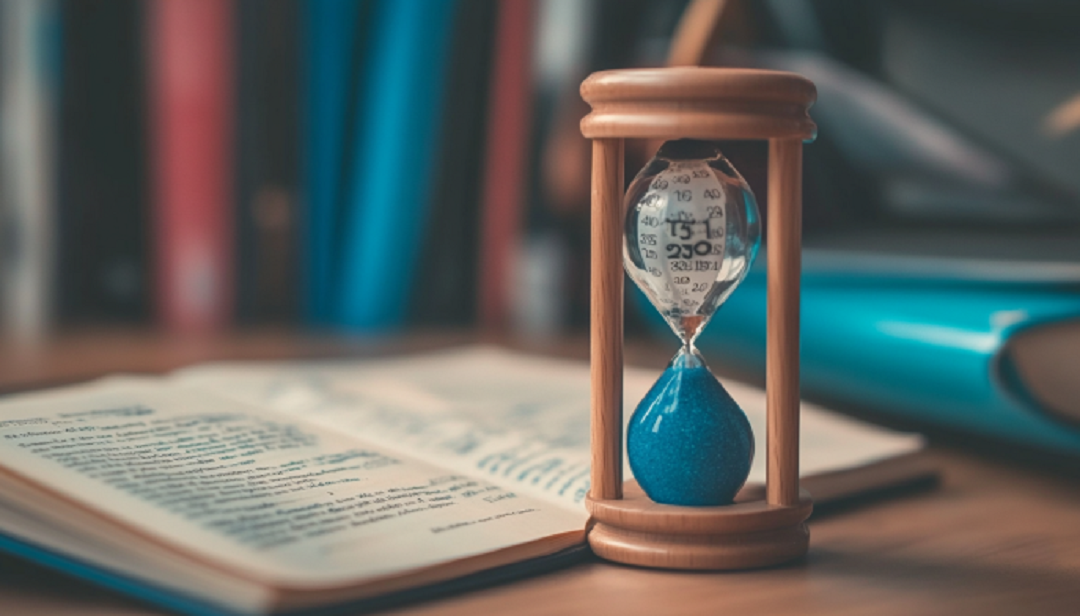Productivity Tips to Help You to Get More Done! 9 Habits of Highly Productive People
Productive habits help unlock the secrets to peak productivity and maximize efficiency while staying focused to accomplish more within a short period. With these 9 productivity tips, you will be able to elevate your work habits and easily achieve your set goals.


Back
8 mins read
Do you sometimes wonder why your productivity is below average? Most people chalk it off to laziness, but you know you’re not lazy. You put in the work like your highly productive colleagues, but your results pale in comparison.
Motivational speakers will try to convince you that successful people work smart, not hard. But hard work is equally important to your productivity as smart work. Successful people do not substitute one for the other; they are determined and work hard on the things that matter. This is a lesson that high value men and women have learned and practice daily.
As famous author Peter Drucker said, there is nothing so useless as doing efficiently that which should not be done at all. Being smart includes recognizing the things that deserve your time and effort. At first glance, it isn’t obvious how highly productive people are more efficient at work than you are.
After all, you work the same eight hours and sometimes expend more energy than they do. However, if you pay more attention to how they do things (hint: multitasking is not one of them), you’ll notice that they have simple strategies — including better time management skills, that help them work faster and better.
Recommended read: A Guide to Better Time Management
How Do Productivity Strategies Help You Prioritize Tasks?

Improving productivity is fast becoming challenging. Many wonder how they can maximize their productivity every day and still enjoy a better work-life balance. With simple life-changing productive strategies—you can easily boost productivity and achieve your goals.
Productivity strategies are proven techniques that help you make the most of your precious time and energy. Adopting productive habits into your daily routine is a great place to start. It can open a world of possibilities for a healthy and active lifestyle. Being productive and knowing you are getting things accomplished can also help prevent that "stuck feeling" many people experience.
This is easier said than done.
However, with consistency, you can easily reap the following benefits when incorporating these strategies into your routine:
- Achieve set goals
- Improve productivity and efficiency
- Improve your overall physical and mental health
- Enhanced discipline and self-control
- Better decision making
- Long-term success and fulfillment
That said, let's look at the best productivity tips you can adopt into your daily routine. These tips are proven to supercharge your productivity and give you an edge to complete tasks.
You may want to read out our Productivity Basics series in the free member’s area.
9 Productivity Hacks: How Can I Be Productive Every Day?

When you see highly productive people completing tasks effortlessly and getting more important work done in a few hours than you do the whole day, do not think they were born with some innate power.
It just looks that way because they have worked to develop a productivity system that makes completing a to-do list seem like a natural process. People who are highly productive understand that it is a myth that multitasking helps them get more done. Instead, they use productivity habits that actually work.
You can be just as productive if you cultivate these productivity tips with the right mindset. Habits require consistency and may take time to develop and maintain, but they become effortless once you get used to them.
Below are nine habits of highly productive people who get more done each day.
1. Plan Ahead
Do not wait until morning to make the plans for the next day. When you have so many things to do, figuring out where or how to start can take time, leaving you with less time to be productive.
In fact, highly productive people plan by making a to-do list for the day ahead before they call it a night. This small act helps them wake up with a focused mind and immediately get to work. So, how do you make a to-do list? Start by setting aside twenty minutes each night to plan your activities for the following day.
Plan your meals, break time, and the time to check emails. Leave nothing out. The fewer decisions you have to make during work hours, the better.
2. Organize Your To-Do List
When you have less time with a long list of tasks, it is natural to feel overwhelmed and stressed. Eliminate the anxiety by organizing your tasks in order of importance and urgency on a to-do list.
Remove the unimportant tasks from the list, prioritize the important and urgent tasks, and do them at the beginning of your work hours. This is where the Eisenhower Matrix approach comes into play.
Let your meetings with clients be in the afternoon or evening when your productivity levels are low. While organizing your to-do list, also be realistic about how much work you can complete daily. Overcommitting and under-delivering will only leave you feeling frustrated.
3. Declutter Your Workspace
We don’t know who needs to hear this, but filling your workspace with many files, folders, and tools doesn’t show people you’re busy. It just proves you’re disorganized. Some people have so many unnecessary items in their workspace that it feels like they’re organizing a scavenger hunt.
Then they wonder why they can’t find anything on their desk or keep losing track of their schedules and meetings. Declutter your workspace to avoid wasting time combing through your desk to find what you need. Of course, we're not telling you to work in an empty space, but a modern workplace is supposed to be minimalistic, and everything should serve a purpose.
Ensure the things you use regularly are within arm’s reach. Store the important but non-urgent files in your desk drawer, and throw needless papers, copies, and printed emails in the trash.
4. Develop a Healthy Morning Routine
Good sleep, healthy food, and light exercise are non-negotiable, as they help promote good physical and mental health and overall productivity. After a good night’s rest, the brain and body feel recharged. Your decisions in the morning usually determine how productive you will be throughout the rest of the day.
Develop a healthy morning routine to improve your productivity and get more done.
Your morning routine doesn't have to be complicated, but it should include activities that energize you and set you up for success. This could include light exercise to stretch your muscles, having a healthy breakfast, and starting work early before you lose your morning energy. Did you know that exercise is actually proven to help increase productivity?
5. Energy Management
Time is constant, but energy isn’t. You may have 24 hours a day, but you can’t maintain the same energy level within those hours. Most people have peak hours in the morning after having had a good night’s rest and early morning breakfast.
However, as the day goes on and work piles up, our energy levels can decline. This is where energy management comes into play. Prioritizing tasks and scheduling them according to your energy levels throughout the day is important.
We recommend doing your complex and most important tasks during peak hours and the less daunting ones in the afternoon or evening.
6. Set Deadlines for Each Task
Setting deadlines helps you stay organized and on track with your goals. It also allows you to develop better time management strategies, as you can see how much time is required to complete one task and adjust your schedule accordingly.
If you struggle with meeting deadlines, set reminders and alarms to notify you of approaching deadlines. Alternatively, you can implement the two-minute rule for small tasks. The two-minute rule is a time management strategy coined by David Allen, the author of Getting Things Done.
It states that if a task can be completed in two minutes or less, just do it now rather than procrastinate. Don't waste time deciding whether to do small tasks that keep getting pushed back to the bottom of your to-do list or not. Just get it done and move on to the next task.
Another helpful productivity tip to help you hit deadlines is batching your tasks, which involves grouping similar tasks together. For example, if you have several emails to respond to, set aside a few moments to tackle them all at once.
This will allow you to focus solely on one task without getting sidetracked by other duties in between. Concentrating on a single task also prevents repetitive task switching, which can cause mental fatigue and decrease productivity.
Also, consider taking the time management test, just to be sure of your time management skills.
7. Eliminate Distraction
Unless you are in the flow, when you start working, everything else suddenly feels interesting. There are hundreds of things around you that can distract you from working — leading to time wastage. But the most common distractions come from social media and emails.
You’ll find it hard to focus when you check every email notification while working. Highly productive people do not check their emails every few minutes. It’s a major distraction, and you risk spending half your time on unproductive tasks if you check every email notification as it comes in.
Fix a few minutes in your schedule for checking and responding to emails, preferably twenty minutes each in the morning and afternoon. If you regularly receive important information via mail, you can dedicate five minutes every hour to check email notifications.
You can use apps or browser extensions to block email notifications during working hours. This will help you stay focused and avoid unnecessary interruptions. Otherwise, it's better to keep your phone far away to avoid distractions. After all, out of sight is out of mind.
8. Take Regular Breaks Between Important Tasks
No matter what kind of work you do, scheduling regular breaks between tasks is one of the most effective productivity hacks for stayin focused and motivated. Breaks are also important for your cognitive and mental well-being.
Unfortunately, many people are so occupied with work that they do not consider breaks necessary. The human body and mind struggle to focus on tasks for long periods. Research shows that taking a few minutes breaks from mental work before moving on to a new task can allow your mind to recover from intense focus and give you much-needed moments of relaxation.
We’re not just talking about lunch breaks in the middle of the day. The Centers for Disease Control and Prevention recommends taking at least one five-minute break every hour. A time management method known as the Pomodoro Technique can help you keep track of those breaks.
Use this time to get up from your chair and take a short walk to help prevent lower back pain. Walking improves blood circulation to your feet, and eye doctors recommend taking regular breaks from staring at the computer screen for a long time.
9. Delegate Tasks to Competent Colleagues
If you want something done right, do it yourself. This may be true for urgent tasks requiring your unique expertise, but even the most productive people delegate tasks to equally qualified co-workers or subordinates. Data entry is important but time-consuming. Since it doesn’t require special skills, you may delegate this task while focusing on the ones requiring your unique skill.
We do not mean handing out important tasks you do not want to do. Because while you may not want to do them, handing them out to unqualified people is a recipe for disaster. Delegate tasks to qualified colleagues only when necessary. When done right, delegation is equally an important productivity tip that will help you save time and increase productivity at work as you can focus on more important tasks.
Increase Productivity with Habit Stacking

Try habit stacking if you’re finding it difficult to adopt new habits. Habit stacking is a fantastic way to take on new habits, prioritize tasks, and remain consistent by stacking new habits on top of old habits.
Are you trying to develop a healthy morning routine by exercising better? Schedule five pushups after brushing your teeth in the morning. Experts believe that since your brain is strongly connected to routines like brushing your teeth in the morning, it’s easier to form new ones by doing them immediately before or after that routine.
When you implement these productivity tips and make them a habit, you will not only get more done but also reduce stress and help prevent burnout!
Want to learn other ways to increase workplace productivity?
We recommend these career growth articles:
- Time Blocking 101: Schedule Your Tasks Faster and Smarter
- The Eisenhower Matrix: What is it, and How Do I Use It to Become a Time Management Expert?
- Productivity Basics: Increase Your Productivity with These 4 Tips
- The Bullet Journal Method: An Organizational Strategy for Improved Productivity and Time Management


Return to Blog






